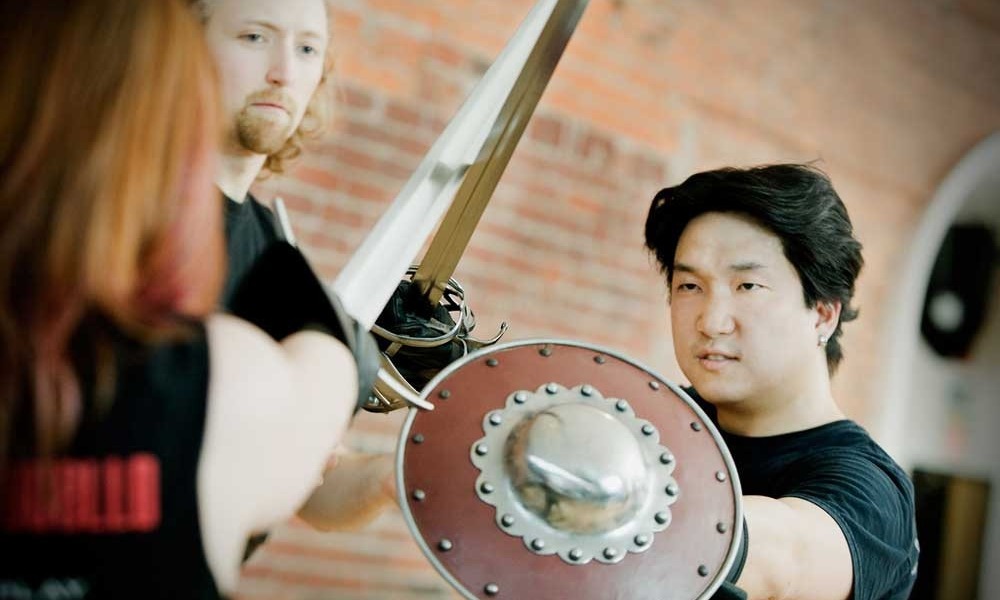At our Friday night open sparring sessions I enjoy getting in and doing a few passes, just like everyone else. During this time, it’s not uncommon for one of my students (after we’ve fenced for a bit) to ask me for some feedback on their fencing.
I’m glad to be asked this question, and I’m pleased in general that my students are seeking input. However, the timing of their request could be better.
I’m not saying that I don’t want the question -- simply that it would be more valuable for the student to ask for feedback at the beginning of our exchange instead of at the end.
There are a few reasons to ask someone up front for their feedback:
1. It prepares your partner to an be observer and not just a fencer. Many people have a hard time recreating what happened in a given fencing pass, let alone over a series of passes. Alerting someone in advance can help them tune in to what you’re doing and not simply focus on their own fighting.
2. Asking up front allows you to provide context for the evaluation. Are you working on anything in particular? Do you want me to evaluate your footwork, your posture, your strategy? Guidance up front can lead to a far more productive feedback session and even allow your partner to probe and challenge you in useful ways as you fence with them.
3. Evaluation, experimentation, practice, and free fencing should all be separate events. The reason that I don’t constantly give feedback to my students, unasked, is that I don’t know what stage of the process they are in. If they’re experimenting with a new technique, or practicing a given action and not another, I don’t want to leap in with feedback that is off target. Evaluation needs to be put in a specific place -- not just thrown around willy-nilly. Unsought for help is at best a waste of breath and at worst a destructive force that undermines your freedom of experimentation and can take away the necessary room to fail.
I recommend making an evaluation date with the insightful coaches in your life (whether they be your peers or your teachers). Ask them up front for observation and give them direction for their feedback. Then keep that time discrete. Experimentation, practice, and simply immersing yourself in free-fencing should play the greatest role in your overall time sparring.
